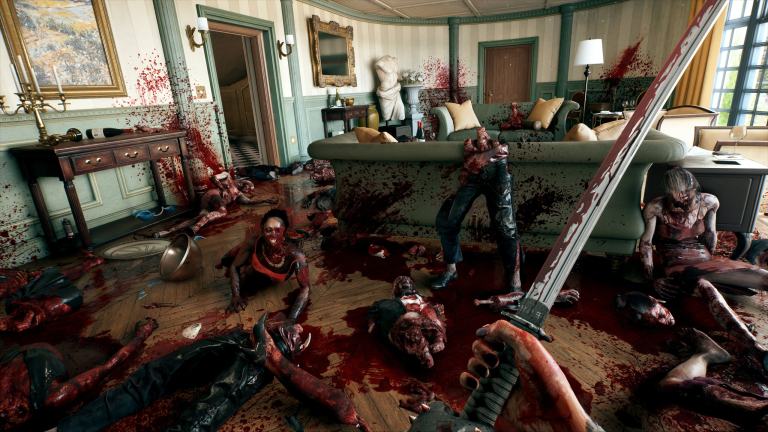Dead Island 2 Developers Think Modern Games Are Too Complex
We’ve come a long way from rescuing princesses who are always in another castle, but the Dead Island 2 team thinks that too many modern developers are trying to do too much with their games.

Whenever a video game’s sequel is announced, fans usually expect the game to hit three checkmarks: the game must be bigger, badder, and better. Or to put it bluntly, they want roughly the same experience but with more real estate, mechanics, and story. This sounds like a great strategy, but some developers disagree and believe it is the cause of many problems in the modern game industry.
Recently, IGN posted a retrospective of Dead Island 2 and its troubled development. For those who don’t know, the recently released sequel went through four developers. Dambuster Studios might have finished Dead Island 2, but Techland, Yager Development, and Sumo Digital all did some work on some version of the title beforehand. After the first three studios were dropped, it was Dambuster’s chance to shine and pitch their vision of the zombie-stomping simulator. The studio showed off its ideas, got the project, and released Dead Island 2 on April 21st.
So how did Dambuster convince Deep Silver when it only had one disappointing (but underrated) game in its portfolio? By taking the lessons learned from that project to heart and forming a new game development philosophy: Modern games are too complex.
“It wasn’t necessarily the content, or the tone, or the stuff like that,” says Dead Island 2 creative director James Worral reading why the studio didn’t just pick up exactly where the previous developers left off. “A lot of it was how they took too complex of an approach. I think a problem that’s facing games, in general, is blossoming complexity and how it comes back to bite the studio when they’re trying to get that game out the door. Early on, we just decided, ‘Right, no just going to be people versus zombies and we have this gore engine going to make the combat really really visceral and tactile and in your face.'”
Throughout the retrospective, IGN interviewed crucial members of Dambuster’s Dead Island 2 team, including Game Director Dave Stenton, Technical Art Director Dan Evans-Lawes, and Creative Director James Worrall. Each member contributed to the game in their own ways, but they all agreed that games have to be focused. According to Stenton, for Dead Island 2, most of that focus was on the zombies, and Evans-Lawes stated that the rest was making the violence “fun.” The thread that bound these ideas together was the Fully Locational Evisceration System for Humanoids, or FLESH Engine. This system dynamically made slaying zombies fun and served as the backbone of Dambuster’s vision for Dead Island 2. And Dambuster never strayed far from it to avoid the mistakes of other studios, as well as the mistakes they made previously
Prior to Dead Island 2, Dambuster developed Homefront: The Revolution, and many reviews claimed the game wasn’t fun and was overly complex. Stenton agreed with this analysis, as he said the game had “too many emergent systems,” and Dambuster didn’t try to make the game fun until later in development. Evans-Lawes remembered working hard on systems such as dynamic weather and a day-night cycle that, in his eyes, didn’t contribute much to the final product’s experience. So when it came time to give Dead Island 2 a shot, Dambuster focused on fun (and the FLESH engine) from the get go. Worral even believes that Yager and Sumo Digital’s attempts didn’t pan out because, like Dambuster’s work on Homefront, they tried to make Dead Island 2 too complex.
Worral’s suggestion that complexity is a growing problem in the game industry was echoed by Evans-Lawes who said that developers need to focus on doing a few things in a game and doing them well. Not only would that polish the product but also help companies get their games out in a reasonable timeframe. Since Yager’s failed vision of Dead Island 2 included ambitious ideas like an 8-player co-op campaign, as well as more weapons and zombie types, and since the studio parted ways with the project due to conflicting visions, maybe the Dambuster staff is onto something.
For a while, many gamers were confident Dead Island 2 was dead in the water, but then Dambuster Studio came along, finished the game, and honestly did a pretty good job. The company started with a solid vision and stuck with it, cutting out extraneous content. Perhaps if more studios learned from Dambuster’s example and tried making games that were less complex, we would see more polished titles, as well as fewer delays and crunch periods. Assuming, of course, the company’s directors are correct and games are getting too complex.
